 Editor’s Note: WCIT is pleased to feature a series of guest blog posts on our State of Trade Blog. Guest bloggers are experts from diverse industries who will be writing on various topics relating to international trade policies and their impact on Washington state. Today’s guest blogger is Ann Nagele, Senior Counsel at Perkins Coie in the International Group. Ann represents clients in a wide variety of industries on international trade issues, including U.S. sanctions and other export-control-related matters.
Editor’s Note: WCIT is pleased to feature a series of guest blog posts on our State of Trade Blog. Guest bloggers are experts from diverse industries who will be writing on various topics relating to international trade policies and their impact on Washington state. Today’s guest blogger is Ann Nagele, Senior Counsel at Perkins Coie in the International Group. Ann represents clients in a wide variety of industries on international trade issues, including U.S. sanctions and other export-control-related matters.
Russia’s recent annexation of the Crimean Peninsula in Ukraine may seem like a faraway event that has little direct impact on Washington state. However, it could have great implications for our state if the actions of Russia in this region force the United States to implement further sanctions than those recently issued.
Russia is one of Washington state’s fastest growing trade partners. In 2012, we exported $906 million to Russia, a 104% increase over the year before. In 2013, exports grew another 68% to $1.5 billion. Our state’s top exports include aerospace products, agricultural goods and industrial machinery. It’s not only our large companies like Boeing and Microsoft that export products to Russia; many small businesses across the state, from Nelson Irrigation in Walla Walla to Anderson Hay & Grain in Ellensburg, export their goods to Russia. Companies across Washington state have significant business ties with Russia. If the United States takes further action to impose additional sanctions on trade with Russia, many such employers in our state could be affected.
Right now, the U.S. sanctions in place against Russia are primarily targeted against Russian government officials and their inner circle of associates, as well as others found to be threatening the peace and security of Ukraine or undermining their democratic processes. These sanctions block ( or “freeze”) their assets in the United States and prohibit these individuals from entering the United States.
On March 20, President Obama announced new sanctions aimed primarily at disrupting Russia’s economy. These new sanctions set up a framework for future sanctions against sectors of the Russian economy and those persons and entities working within such sectors. The sectors are to be determined by the U.S. Treasury Department in consultation with the U.S. State Department, but so far no determinations have been made. If and when they are named, the sectors will likely be those set out in the sanctions framework below:
-Financial services
-Energy
-Metals and mining
-Engineering
-Defense and related material
If such sanctions do go into effect, of course it would impact companies in Washington state doing business in these sectors in Russia. Since the Obama Administration has continued to emphasize that it’s considering a wide range of options in response to developing events in Ukraine, additional sanctions, or even a full embargo (though unlikely), may be implemented. The extent of sanctions will depend largely on the actions of the Russian government going forward in Crimea and elsewhere in Ukraine and the region. In addition, Russia could retaliate with sanctions of their own against the United States. At present, Russia has imposed sanctions against members of the U.S. Congress.
If you are an employer in Washington state and do business with Russia, you should stay up to date with the foreign policy developments between the United States and Russia. There are a few steps you may wish to consider now to protect your business, such as reviewing all of your current or in-progress investments, operations or transactions in or involving Russia. In particular, consider whether your involvement in Russia is within the sectors named in the most recent list of possible sanctions.
For a full list of steps you can take to protect your business and more details on current sanctions, visit the Perkins Coie Update here.
With all the potential Washington state has to continue growing jobs through increased trade with Russia after Permanent Normal Trade Relations (PNTR) with Russia was passed in 2012, hopefully the situation will improve and Washington state’s trade relationship with Russia will not be harmed.
UPDATE, March 27: the U.S. Department of Commerce and U.S. State Department have suspended issuance of export licenses to Russia for dual-use items and defense articles/services.

